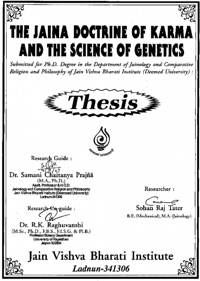The scripture talks about the place of storage of karmic info too, and that place is incidentally not this physical body. The jīva comes to a mother's womb with its own bag and baggage, this alone explains existence of abnormally different indignations of child and parents. So no physical manipulation can really alter the inclinations (karma) of any jīva. Yes the health of people can certainly be altered, and so far so good. Moreover these genes themselves are a later manifestation in the beautiful process of creation, and they are basically meant to facilitate bringing about the ideal conditions of the karmas of a jīva to express and exhaust. Physical features and same such gross things are provided by the parents to the child, but the jīva comes in the womb with its own karmas. That alone is the reason why a śūdra couple too can possibly have a child with the inclination of a brāhmaṇa or even kṣtriya. If what was provided by parents alone draw the line with in which this jīva lives and operates then such things could never have happened.[17]
Is there a possibility that the psycho-sometie effect of committing a sin or crime can cause an epigenetic change in a person and whatever the consequence of that change will get transmitted to his or her offspring? So for no scientific evidence can be provided for that possibility. Perhaps "karma" will prevail over dogma. [18] Such misperception of genetics sounds - strange as this might seem at first - like the common use of the saṁskṛta term "karma" often defined as the "law of cause and effect". Both karma and genetics are frequently used to refer to fate, something predestined, But karma provides the situation, not the response to the situation", according śambhālā dictionary of Buddhism and Zen. Further under "karma" in another book by the same publisher, "Future conditions depend on what we do in the present, substitute "genetics" for "karma". [19]
Vedānta article - "Mapping of human genome and the possible dangers of karmic manipulations" - by Swami Ātmānañda, Vedanta mission, p. 1.
Dr. Sethuramaṇa subramaniana, [email protected] published on 18-11-2003.
 Prof. Dr. Sohan Raj Tater
Prof. Dr. Sohan Raj Tater
 Doctoral Thesis, JVBU
Doctoral Thesis, JVBU